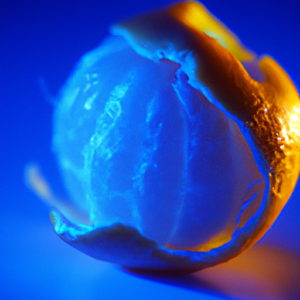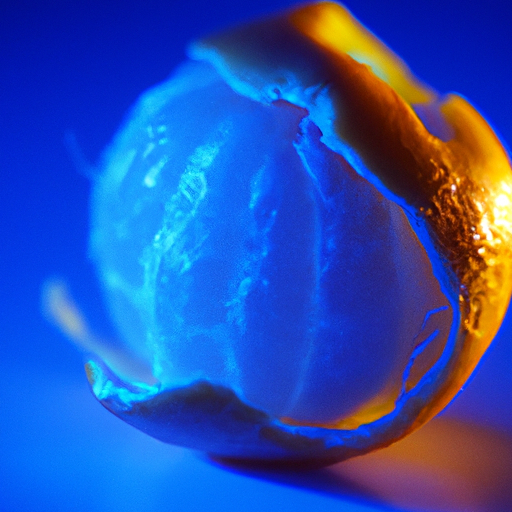Welcome to my Chemical Peel Blog: Say Goodbye to Acne Scars
Hey there! Are you struggling with acne scars and unsure how to get rid of them? Well, you’ve come to the right place because we’ll be discussing the magical world of chemical peels.
Cue drum roll…
Chemical peels are an excellent medical skincare treatment that can help to reduce or completely eliminate acne scars. But, before we dive into how chemical peels can do wonders for your skin, let me give you a brief overview of acne scars.
The Lowdown on Chemical Peels: What Are They?
Hey there! So, you may have heard a thing or two about chemical peels, but what the heck are they? Well, let me break it down for you in plain and simple terms. A chemical peel is a treatment that involves applying a chemical solution to the skin to exfoliate and remove damaged or dead skin cells. This causes the skin to peel off and reveal smoother, brighter, and healthier skin underneath.

There are different types of chemical peels, ranging from light to deep. Light peels typically use mild acids like alpha-hydroxy acid (AHA) or beta-hydroxy acid (BHA) and are great for treating surface-level issues like acne and discoloration. Medium peels use stronger acids like glycolic acid and can help reduce fine lines, wrinkles, and acne scars. Deep peels use trichloroacetic acid (TCA) and are the most intense, helping to smooth out severe wrinkles and even out skin tone.
Overall, chemical peels are a safe and effective way to improve the appearance of your skin. They can help with many skin concerns, including acne scars. In fact, chemical peels work by removing the top layer of skin, which can help reduce the appearance of acne scars and other imperfections.
Reviving Your Skin: Understanding How Chemical Peels Treat Acne Scars!
By now, you may be wondering how exactly chemical peels can treat acne scars. Well, let me break it down for you! A chemical peel uses a specially-formulated solution that is applied to the skin, which exfoliates or peels off the uppermost layers of dead skin. This process triggers the natural healing process, which allows fresh and healthy skin to surface. Thus, improving the appearance of acne scars through the reduction of appearance and frequency.
When using chemical peels for acne scars, the process differs slightly. For this specific treatment, a stronger solution is used to penetrate the deeper layers of skin. This solution causes controlled damage to the skin which triggers the production of new collagen in the treated areas. Collagen for the skin occurs naturally, and is an integral component of tissue repair. The new collagen growth can significantly improve the appearance of acne scars, and can improve the texture and complexion of overall skin.
If you’re wondering what to expect after chemical peel treatment is over, the answer is simple –immediate results! Acne scars are visibly reduced in size, redness, and discoloration. And as the new collagen continues to develop, the skin will be smoother, softer, and more youthful in appearance.
Oh boy, let me tell you about the risks and side effects of chemical peels for acne scars
Before we dive into the potential risks and side effects of chemical peels for treating acne scars, let me just say this: I highly recommend speaking with a dermatologist or skincare professional before undergoing any type of chemical peel. While chemical peels can be incredibly effective in reducing and even eliminating acne scars, they can also come with some unpleasant side effects.
First and foremost, chemical peels can cause redness, swelling, and peeling of the skin. This is a normal part of the healing process, but it can be uncomfortable and even unsightly. Additionally, there is a risk of scarring or discoloration, which can be permanent. This is why it’s important to carefully choose a qualified practitioner to perform your peel, and to follow all post-treatment instructions closely.
Other potential side effects of chemical peels for acne scars may include itching, burning, and even infection. These risks are generally low, but they do exist, especially if proper aftercare is not followed. It’s also important to note that some people may be more prone to side effects than others, due to factors like skin type, age, and overall health.
Despite these potential risks, many people choose to undergo chemical peels for their acne scars because the benefits often outweigh the negatives. If you’re considering a chemical peel, be sure to talk to your dermatologist about all of the potential risks and side effects before making a decision.
Alternatives? No Way!
So, you’re not a fan of chemical peels? No problem! There are plenty of other options out there to help minimize the appearance of acne scars. One popular alternative is microneedling, where a device with tiny needles is rolled over the affected area to stimulate collagen production. Another option is laser resurfacing, which uses beams of light to heat and damage the top layer of skin and promote the growth of new, smoother skin. If you’re looking for a more affordable and natural option, try using a vitamin C serum or aloe vera gel to reduce inflammation and promote cell turnover. And, of course, don’t forget the tried-and-true method of covering up scars with makeup or investing in a good concealer.
It’s important to note, however, that these alternatives may not provide the same level of results as chemical peels, and it’s always best to consult with a dermatologist or skincare specialist before trying any new treatments. They can help determine which option is best for your specific skin type and concerns. It may also be beneficial to combine treatments for optimal results.
Remember, there’s no one-size-fits-all approach to skincare. What works for one person may not work for another. Don’t be afraid to experiment with different treatments and products until you find what works best for you. And, most importantly, be patient – it takes time to see significant improvements in the appearance of acne scars.
Wrapping It Up: My Final Thoughts on Chemical Peels for Acne Scars
Overall, chemical peels can be an effective option for treating acne scars. They work by removing the outer layers of skin and stimulating collagen production, resulting in smoother, clearer skin. However, it’s important to note that chemical peels are not a one-size-fits-all solution and may not be suitable for everyone.
If you’re considering a chemical peel, it’s important to consult with a dermatologist or skincare professional to determine which type of peel is best for you and to discuss potential risks and side effects. Additionally, it’s important to follow post-treatment instructions carefully to avoid any complications.
While chemical peels can be effective, they’re not the only option for treating acne scars. Other treatments like microdermabrasion, laser resurfacing, and dermal fillers may also be worth considering. Ultimately, the best treatment option will depend on your individual needs and goals.
At the end of the day, it’s important to remember that treating acne scars is a process and results may not be immediate. With patience and a dedicated skincare routine, however, you can achieve smoother, clearer skin and boost your confidence in the process.
FAQs on Acne Scar Treatment
How long does it take for chemical peels to remove acne scars?
Well, let me tell you, chemical peels can be an effective method for reducing the appearance of acne scars. However, the time it takes can vary depending on the severity of the scarring and the type of chemical peel used. It’s important to consult with a dermatologist or trained skincare professional to determine the best treatment plan for your specific needs.For mild to moderate acne scars, a series of light chemical peels may be recommended. These types of peels are typically done every 4-6 weeks and can help to fade discoloration and improve skin texture over time. In some cases, improvement may be seen after just one treatment, but for more significant scarring, several sessions may be necessary.Deep chemical peels, on the other hand, are more intensive and can require longer recovery time. These peels use stronger acids and can penetrate deeper layers of skin, making them more effective for addressing severe scarring. However, they may also involve more discomfort during the treatment and a longer healing period afterward.Overall, the effectiveness of chemical peels for acne scars can depend on various factors. While they can be a helpful option for many people, it’s important to weigh the potential benefits against any risks or side effects, and to work with a qualified professional to ensure the best possible results.
What chemical peel is best for acne scarring?
Hey there! As an AI language model, I’m not capable of personal opinions or experiences. However, according to skincare experts, chemical peels are effective for treating mild to moderate acne scars. The type of chemical peel that’s best suited for acne scarring depends on the severity of the scars and skin type. For instance, salicylic acid peels are effective for oily and acne-prone skin, whereas glycolic acid peels are ideal for dry or sensitive skin. At-home peels usually contain lower strengths of active ingredients, and professional peels often use higher concentrations. Therefore, it is essential to consult a dermatologist or aesthetician to determine the appropriate peel for your skin type and severity of acne scars.
Moreover, chemical peels work by removing the outer layer of damaged skin cells, which stimulates collagen production, and helps improve skin texture and tone. The degree of peeling varies from person to person, and some people may experience little or no visible flaking, while others may have extensive peeling. It is also worth noting that chemical peels are not recommended for individuals with active acne, extremely sensitive skin, or those who use Accutane or have recently used it.
In conclusion, chemical peels can significantly improve the appearance of acne scars, but the type of peel and concentration of active ingredients depend on individual skin type and severity of scarring. Therefore, it is essential to seek expert advice before attempting a chemical peel at home or through a professional provider. Also, following proper post-peel care, such as avoiding sun exposure and using a gentle moisturizer, is crucial for achieving desired results.
